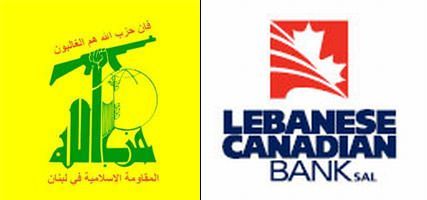 Everything you need to know about today’s media coverage of Israel and the Mideast.
Everything you need to know about today’s media coverage of Israel and the Mideast.
Ayatollah Khameini’s son is reportedly arrested in a plot to assassinate the Iranian supreme leader. And why is Tom Friedman’s comments about “the Israel lobby” sparking a fierce demand for an apology?
Iranian Atomic Urgency
• Despite Tehran’s bombastic threats, the Washington Post finds that ordinary Iranians fear a catastrophic war with Israel.
In the subway, on the streets and at private gatherings, Iranians are debating the possibility of war and how to protect their families if it should come.
As tension rises, many have started taking precautionary measures. Some are stocking up on basic goods. Others are changing their money into foreign currencies, or obtaining visas to move abroad . . . .
Anxiety is also being fueled by the latest rounds of international sanctions against Iran. While Iranian officials continually say the country can cope with the growing limitations, average Iranians are faced with soaring prices and a plummeting exchange rate for their currency, the rial. It has lost 48 percent of its value against the dollar since 2008.
• Ayatollah Khameini ordered the arrest of several senior Revolutionary Guards figures: he blames them for trying to assassinate him. The Jerusalem Post writes:
According to the source, “some of those” detained had invited Khamenei to come and visit the same weapons depot near Tehran where a large blast killed 17 people, among them the head of Iran’s ballistic-missiles program.
Khamenei was invited to visit on Novemeber 12, the same day as the blast, according to the Al Arabiya report.
Mojtaba Khamenei, Khamenei’s son and an ardent supporter of Iranian President Mahmoud Ahmadinejad, was one of the officials that was arrested, according to the report.
• Zalman Shoval told the Washington Times that US standing in the Mideast will disappear if the Iranians acquire a nuclear weapon.
Arab Spring
• Shoval also eloquently discussed Israel’s Arab Spring anxieties with UPI‘s Arnaud de Borchgrave. Shoval described the Arab Spring as an “anti-democratic, anti-human rights movement camouflaged as a victory for human rights.”
Most Arab elections, warned Shoval, will produce anti-U.S., anti-Israel parliaments.
• Worth reading: Larbi Sadiki (NY Times) compares the savvy Hamas response to the Syrian uprising with Hezbollah’s short-sightedness:
While Hezbollah’s pro-Assad rhetoric and deeds scream “united we stand,” Hamas’s position on the Syrian uprising has been eloquent in its quiet dissidence. The former frets over supply lines for weapons from Iran if the Assad regime falls. The latter, buoyed by the recent success of fellow Sunni Islamist movements — from Tunisia to Egypt — sees a horizon beyond the Assads.
• But the Financial Times (via Google News) reports that Hamas is having a difficult relocating its base of operations, with analysts saying that pending reports of a move to Qatar or Egypt are premature.
Hamas leaders are keenly aware it can be dangerous to pick the wrong side. “No one wants to make the mistake that [former Palestinian leader Yassir] Arafat made in Kuwait,” said Mostafa Alsawaf, the editor of Alresalah, a pro-Hamas newspaper in the Gaza Strip.
Arafat backed Saddam Hussein’s invasion of Kuwait in 1991, and after Iraq’s defeat Kuwait took revenge by expelling some 450,000 Palestinian expatriate workers. Syria is home to about 500,000 Palestinian refugees and their descendants – a potentially huge target for retribution.
 • Time announced its Person of the Year.
• Time announced its Person of the Year.
And it ain’t Recep Tayyip Erdogan nor Avigdor Lieberman. It’s The Protester.
• The second round of Egyptian elections are underway (and you thought the hockey playoffs drag on). According to CNN:
The round is vital because voting occurs in Giza, Luxor, Aswan and Ismailia regions , which have historically favored conservative Islamic candidates.
Egypt’s Islamists claimed victory in the first round last week.
The relatively moderate Muslim Brotherhood‘s Freedom and Justice Party has said on its website that it had won 34 seats in the runoff election.
Rest O’ the Roundup
• Ain’t this splendid? More honors for Silwan fauxtography.

• NY Times columnist Tom Friedman weighs in on Newt and Israeli/Palestinian identity. I understandsome of the concerns, but Friedman’s references to the New Israel Fund, Financial Times, and Haaretz (especially Gideon Levy) say a lot about where he gets his ideas from. Then there’s this:
I sure hope that Israel’s prime minister, Benjamin Netanyahu, understands that the standing ovation he got in Congress this year was not for his politics. That ovation was bought and paid for by the Israel lobby.

Elliott Abrams reax to Friedman:
But what in the world except prejudice can lead Mr. Friedman to make the ugly charge that support for Israel in Congress, need support for Mr. Netanyahu in Congress, is “bought and paid for by the Israel lobby?”
I would hope that in the cold light of morning Mr. Friedman would re-read what he wrote and withdraw the remark. Members of Congress in a country that is two percent Jewish stand to applaud Prime Minister Netanyahu because they, like their constituents, support Israel and want America to support Israel. Many of those standing and cheering were from districts where there are no Jews or a handful of Jews, and where Evangelical churches form the strongest base of support for the Jewish state. Now perhaps Mr. Friedman means those churches when he refers so nastily to the “Jewish Lobby,” but I doubt it. I think we all know what he means, and that is why he should withdraw the ugly remark fast. He owes an apology to hundreds of members of Congress who spoke for their constituents when they applauded Mr. Netanyahu, and to the millions of Americans Jews and Christians whom they faithfully represent.
• Here’s an example of the NGO halo effect grabbing a hold of Big Media — in this case, AFP.
NGOs slam rising demolitions of Palestinian homes
• The second phase of the Gilad Shalit prisoner swap is underway.
• The NY Times takes us into a detailed look at the ledgers of one of Hezbollah’s money-laundering banks:
. . . intelligence from several countries points to the direct involvement of high-level Hezbollah officials in the South American cocaine trade.
One agent involved in the investigation compared Hezbollah to the Mafia, saying, “They operate like the Gambinos on steroids.”

• Last but not least, the Globe & Mail‘s Patrick Martin took a skewed look at Israeli religious/secular tensions. I responded to Martin earlier today.

